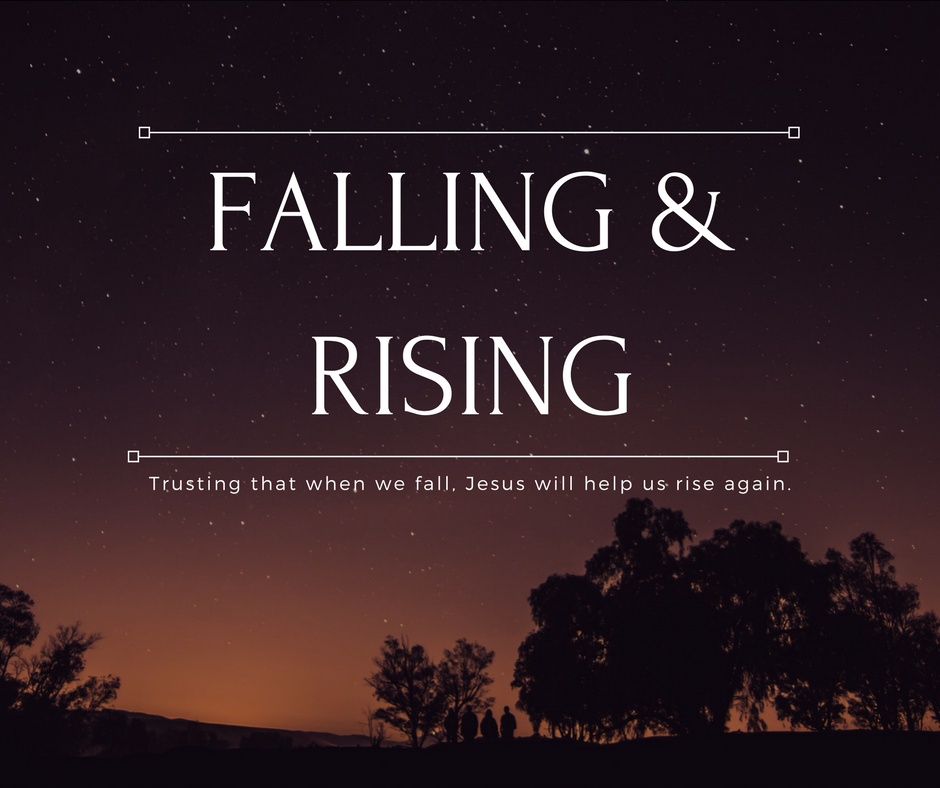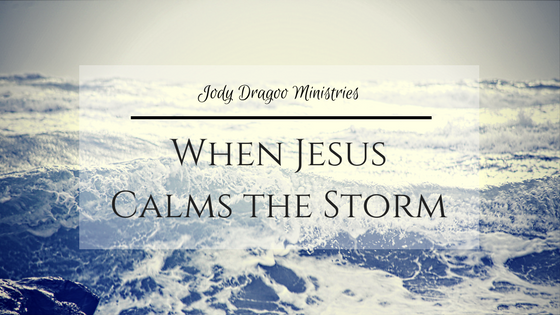A furious squall came up, and the waves broke over the boat, so that it was nearly swamped. Jesus was in the stern, sleeping on a cushion. The disciples woke him and said to him, “Teacher, don’t you care if we drown?” He got up, rebuked the wind and said to the waves, “Quiet! Be still!” Then the wind died down and it was completely calm. He said to his disciples, “Why are you so afraid? Do you still have no faith?” They were terrified and asked each other, “Who is this? Even the wind and the waves obey him!” – Mark 4:37-41
I’ve always been interested in the account of Jesus calming the storm. In truth, it’s a relatively small story within the three gospels (Matthew, Mark, and Luke), but I think it speaks volumes as to a believer’s encounter with trials.
We’re in this boat
This story starts with Jesus taking his disciples and getting in a boat in order to travel to the other side of a lake, “Let us go over to the other side.” In much the same way, Jesus calls us to travel with Him. He instructs us to follow Him to the “other side.” We’re told to leave our old self behind, and follow Him to this new life. And we’re perfectly fine with that because, hey, we’re with Jesus. He’s shown us things about ourselves and about the Father in such a way that we trust Him completely. Nothing could possibly go wrong while we’re with Jesus.
A storm comes
Somewhere in the middle of the trip, far away from the shore, a “furious squall” comes and the waves are crashing over the boat, nearly taking it over. Because no one, not even the disciples, not even me or you, can journey through this life without storms. You’ve gone a distance with Jesus, things are looking pretty good, you’ve probably had a fantastic blessing or two, and then out of nowhere, a huge “furious” storm comes into your life and it nearly takes you down. You’re close to losing it all.
But Jesus is sleeping
In the midst of this storm, with waves crashing all around them, and fearing for their very lives, the disciples don’t see Jesus. He’s down below deck, out of sight. Sleeping. And even though He’s going through that storm as much as they are, He can’t be seen. Those are the times, when we travel through the storms, that we are in desperate need of a word or comfort from Jesus, but He’s silent. He’s not talking. We’re looking at this raging storm and just thinking, “I’m not going to make it,” and feeling all alone.
So we reach out
In that moment, the disciples rush down to wake Jesus. They ask the question we all want to know, “Don’t you care?” In our storm, in that overwhelming situation, we cry out to our silent Savior, “Don’t you care? Why aren’t you doing anything about this? Can’t you see I need You? Help me!”
And Jesus calms the storm
The account says that Jesus got up and “rebuked” the wind, telling it to “Be still,” and it was completely calm. Psalm 46:10-11 also tells us to “Be still, and know that I am God,” then goes on to say that He will be exalted among the nations and the earth, and that He is our fortress. When Jesus calms our storms, He is changing the situation for His glory. That is not to say that He will answer our prayers in the exact way we request, because He often doesn’t. But we can be sure that when all is Quiet and Still, He will have been glorified.
Then convicts our hearts
When it was completely calm, Jesus turned to His disciples and asked, “Do you still have no faith?” As His followers, they had been with Him, heard His teaching, seen His miracles, and still in that storm, they faltered. And so do we. We spend so much time focused on our storms that we stop focusing on our Savior and who He is. We panic, and Jesus reminds us that we don’t have to. We have Him in our boat.
It’s also interesting that Matthew’s account has the conviction of heart before Jesus calms the storm. Out of the three gospels with this account, Matthew was the only one that was a disciple of Jesus. Mark and Luke heard these accounts second-hand from Peter and Paul. And yet, Matthew was there. Clearly, he felt convicted even before Jesus changed the situation.
This can be common among believers. When we are struggling through a storm, and reaching out in a panic for Jesus, there’s a huge part of our heart telling us, “Don’t worry. Don’t be afraid. You know Jesus is bigger than this problem. He has provided so many times in so many ways, that there is no reason to stress like this.” But it just doesn’t help. Because we are human and finite. We can’t see the big picture. We get lost in ourselves and our storms.
And we stand amazed
At the end of the storm, in that moment of clarity, when we can finally take a breath, we stand in awe. “Who is this?” Even after all that we have gone through with Jesus, we are still constantly amazed at His greatness. When our situation has finally been changed for His glory, we’re left standing there, dumbfounded, asking ourselves, “How is this possible? Is there nothing He can’t do?” And there’s not. There’s nothing He can’t do.
We can’t stop a storm. We don’t have that type of power. All we can do is hold on, say a prayer, and trust that Jesus is with us. Even if He’s silent. When the storm is finally over, you can bet that your surroundings will look different. There will be damages, but there will also be a chance to rebuild something even better. For His Glory.
Lord, we don’t like storms. We don’t enjoy the unknown and changes, but we know that You are with us, and You are for us. Enable us to hold on to You, looking forward to the calm that You bring and the glory You receive.
-Amen



